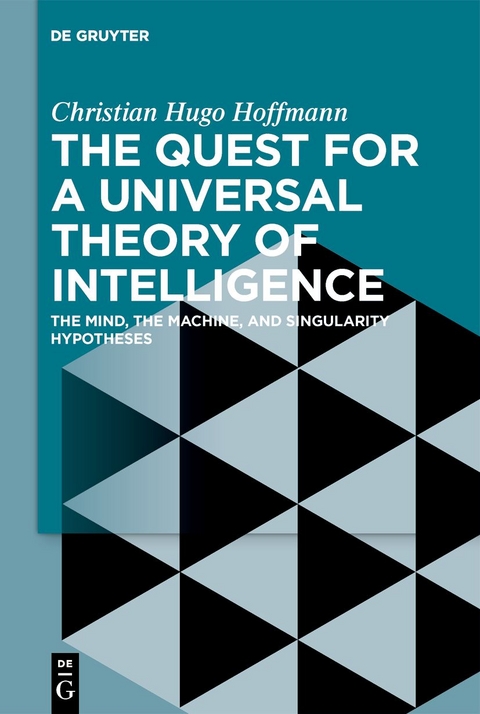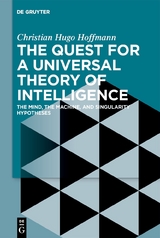The Quest for a Universal Theory of Intelligence
The Mind, the Machine, and Singularity Hypotheses
Seiten
2022
De Gruyter (Verlag)
978-3-11-075603-6 (ISBN)
De Gruyter (Verlag)
978-3-11-075603-6 (ISBN)
Recent findings about the capabilities of smart animals such as corvids or octopi and novel types of artificial intelligence (AI), from social robots to cognitive assistants, are provoking the demand for new answers for meaningful comparison with other kinds of intelligence. This book fills this need by proposing a universal theory of intelligence which is based on causal learning as the central theme of intelligence. The goal is not just to describe, but mainly to explain queries like why one kind of intelligence is more intelligent than another, whatsoever the intelligence. Shiny terms like "strong AI," "superintelligence," "singularity" or "artificial general intelligence" that have been coined by a Babylonian confusion of tongues are clarified on the way.
Christian Hugo Hoffmann, Institut d'histoire et de philosophie des sciences et des techniques (IHPST), Paris, France
| Erscheinungsdatum | 21.04.2022 |
|---|---|
| Zusatzinfo | b/w graphics |
| Verlagsort | Berlin/Boston |
| Sprache | englisch |
| Maße | 155 x 230 mm |
| Gewicht | 547 g |
| Themenwelt | Geisteswissenschaften ► Philosophie ► Erkenntnistheorie / Wissenschaftstheorie |
| Schlagworte | Artificial Intelligence • Causality • Intelligence • Intelligenz • Kausalität • Künstliche Intelligenz |
| ISBN-10 | 3-11-075603-X / 311075603X |
| ISBN-13 | 978-3-11-075603-6 / 9783110756036 |
| Zustand | Neuware |
| Informationen gemäß Produktsicherheitsverordnung (GPSR) | |
| Haben Sie eine Frage zum Produkt? |
Mehr entdecken
aus dem Bereich
aus dem Bereich
die Grundlegung der modernen Philosophie
Buch | Softcover (2023)
C.H.Beck (Verlag)
18,00 €
Buch | Softcover (2023)
Reclam, Philipp (Verlag)
7,00 €



![Was heißt Denken?. Vorlesung Wintersemester 1951/52. [Was bedeutet das alles?] - Martin Heidegger](/media/113619842)
